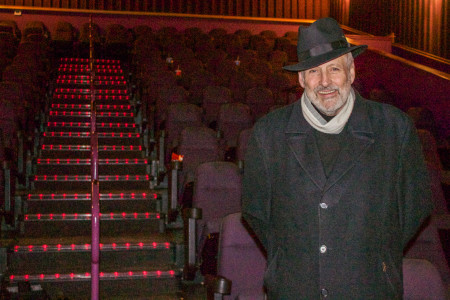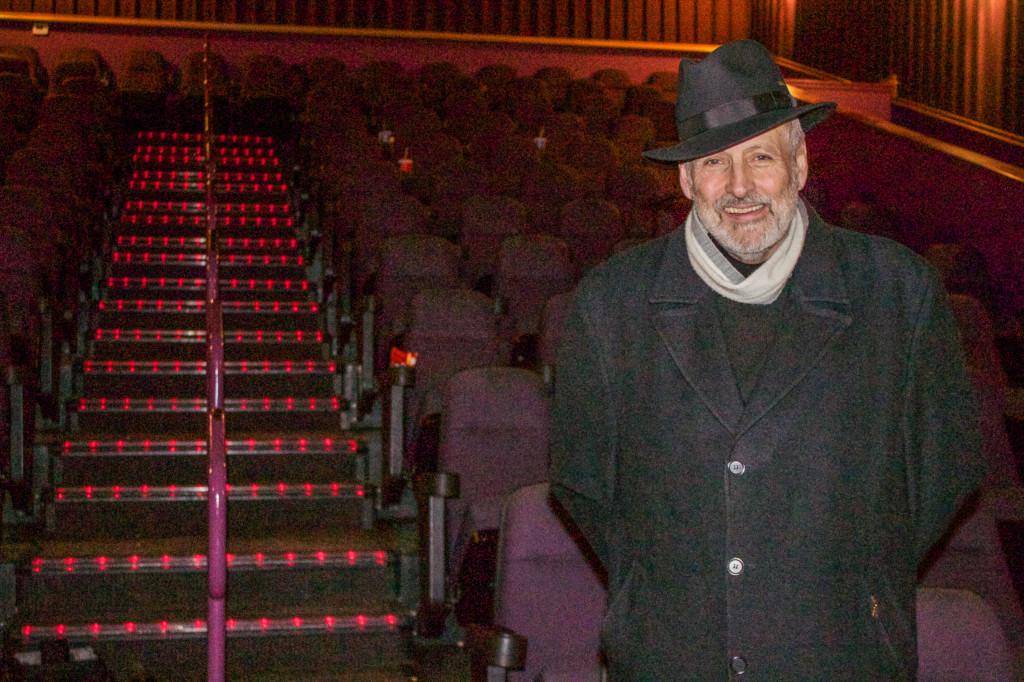
Fourty-nine years after leaving Grinnell for Vietnam, Robert Hodierne ’68 returned to campus this week to talk with students about documentary making, photography and the shifting role of journalism.
Hodierne began working as a photojournalist covering the Vietnam War in 1966, when he was the youngest accredited photojournalist to cover the war. Since then, his career has included investigative journalism, filmmaking and teaching, extending to his current position as the chairman of the journalism department at the University of Richmond.
Hodierne’s recent film, “Afghanistan: The Surge,” follows the trials and diverse experiences of a Marine platoon sent to Afghanistan in 2010. In a lunch meeting with Grinnell students, Hodierne noted the increased accessibility of filmmaking technology, which has drastically increased the affordability of documentary filmmaking since Hodierne’s early sojourn into war reporting.
“The technology for creating films has become much more accessible,” Hodierne said. “You can make a film for next to nothing. All that stands between you doing that is your own creativity, drive and inspiration.”
Hodierne addressed the challenges posed by working as a journalist in an era where media is often expected to provide entertainment value, discussing the tensions that can emerge between obligations to create a narrative and tell the truth.
“Where journalists get in trouble is where they try to impose a story on facts, and you’ve got to do it the other way around, the facts create your story,” Hodierne said. “And the more complicated the story, the more internal contradictions there are, the better as far as I’m concerned. It makes a more interesting story.”
But Hodierne also offered advice on topics beyond journalism, recounting his own journey sailing across the Pacific Ocean to Japan as an example of leaving the beaten path.
“It wasn’t something I did to advance a career, it was something I did because it was fun, and you should have fun,” Hodierne said. “You’ve got your whole life ahead of you. Certainly these first few years out of college, you ought to do something that makes you light up.”
“Afghanistan: The Surge” appeared at The Strand last Monday. It marked the beginning of a week of film screenings organized by the Center for the Humanities in conjunction with their theme for the year, “A Century of War: 1914 and Beyond.” Other films featured in the week’s programming included the silent German expressionist film “The Cabinet of Dr. Caligari” and “Nosferatu.” The programming served as a bridge between Hodierne’s visit to campus and a visit slated to take place next week featuring Anton Kaes, a Professor of German and Film & Media at the University of California, Berkeley. Kaes will deliver a talk on the effects of World War I on German film and society at 7:30 p.m. in JRC 101 next Wednesday, Feb. 18.
“Our decision to show films from that era is part of these linked events,” Center for the Humanities Director Shuchi Kapila, English, wrote in an email to The S&B. “We wanted students and the public to see the films that would be the basis of [Kaes’] talk and to experience German cinema of the inter-war years.”
Hodierne’s work also traces a narrative through decades of military conflict and social turmoil, stretching from the Vietnam War to contemporary conflicts in Afghanistan. But, he said, his ultimate goal is to convey the truth to his readers.
“I want them to understand the world in an honest way. I want to tell in as honest and interesting a way as I can what’s going on in the world around them. You know the first amendment exists not as some sort of academic exercise. The idea is that journalism will have an impact, will cause changes—ultimately, improvements.”
























































